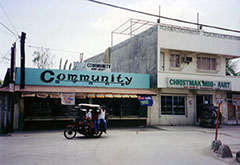Our History

Unlad Kabayan is a non-government organization (NGO) based in the Philippines, but its roots lie in Hong Kong. In I994, Migrant Savings for Alternative Investment (MSAI) was developed as a reintegration strategy by migrant groups and Unlad Kabayan, then a pilot project of the Asian Migrant Centre, a regional NGO in Hong Kong. The goal was to reverse the outflow of Filipino migrants overseas by building job opportunities at home.
In 1996, Unlad Kabayan was founded in the Philippines as a separate NGO to pioneer the MSAI program: savings groups were organized in Japan and Hong Kong and individuals in various destination countries were mobilized to provide capital for expanding microfinance operations and micro-enterprise building in the Philippines.
MSAI evolved from a reintegration strategy for migrant workers to an alternative economic model. It went beyond mobilizing migrant savings overseas and worked towards investing for community development and reintegration. Two strategies were employed: SEEDS (Social Entrepreneurship and Enterprise Development Services) and Business Incubation (BI).
SEEDS were designed as community-based training and resource centers to promote entrepreneurship in the community, serve as a laboratory assisting community entrepreneurs to build, manage and sustain their enterprises, and eventually the community economy sector. Business Incubation enables small and medium entrepreneurs to learn the rigors of business management and social responsibility.
By the end of 2000, we were consolidating experiences and lessons. Building on our gains, we entered our entrepreneurial stage in 2001-2005. This was the period for expanding our work in mobilizing savings and investments, and ramping up social enterprises into commercial operations.
At this time, key enterprise projects in food production and processing were developed, as well as environment-enhancing production and products, and innovative farming techniques. We established value-adding partnerships with progressive NGOs, local and national government, and academic institutions.
